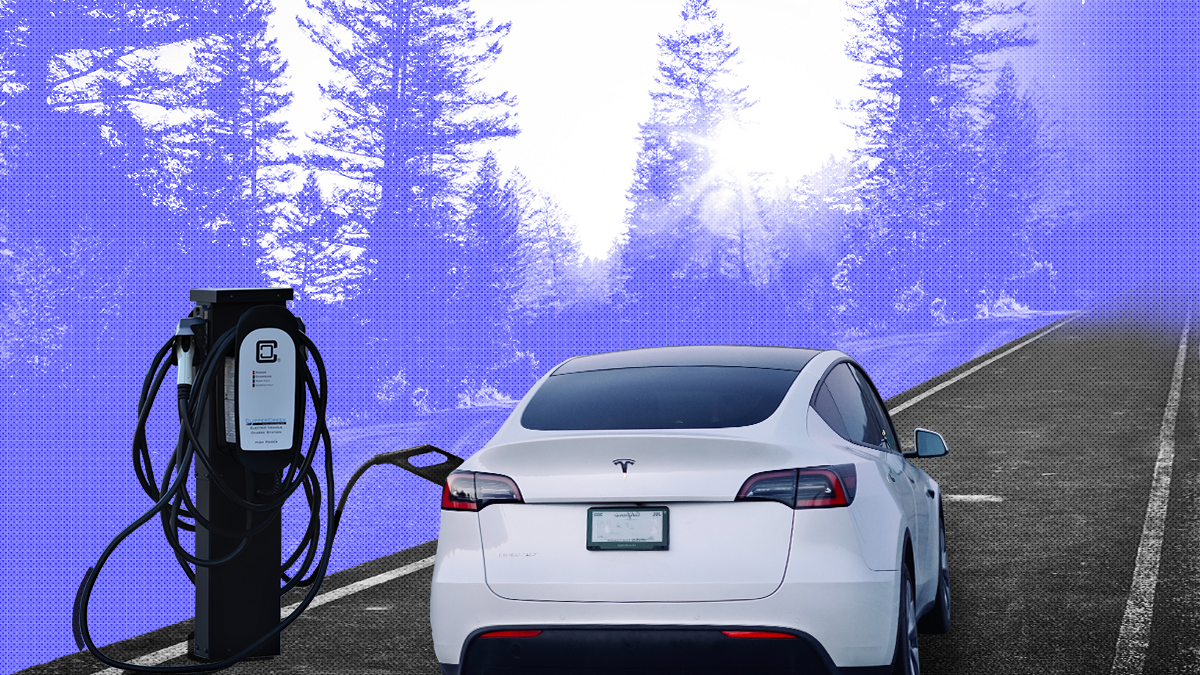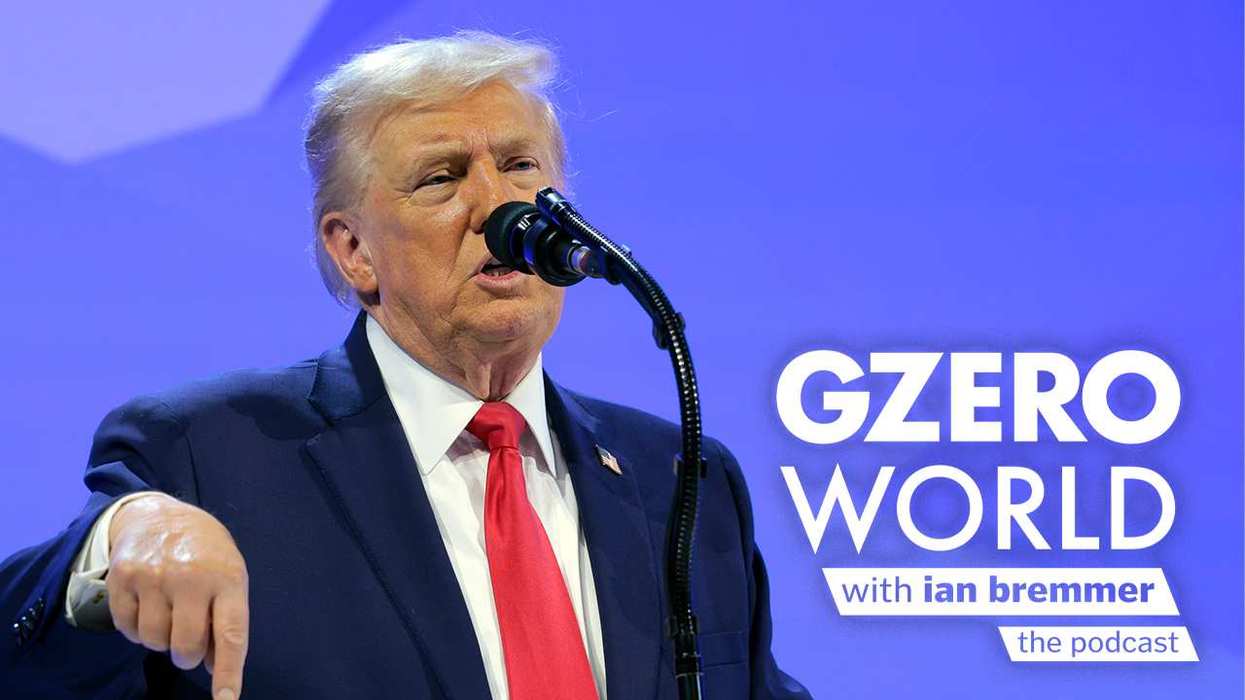In the race to compete with the United States in sustainable mobility, Ottawa has stepped up a gear. Canada’s Environment Minister Steven Guilbeault this week unveiled an ambitious initiative with the Electric Vehicle Availability Standard – a plan to boost the number of zero-emission vehicles available to Canadian consumers.
The EVAS mandates the phase-out of new gasoline or diesel-powered passenger vehicle sales by 2035. Automakers will have 12 years to gradually increase the proportion of fully electric or longer-range plug-in hybrids on offer. Starting in 2026, 20% of their new inventory must be EVs, rising to 34% in 2028, 60% in 2030, and 100% by 2035.
“There’s no mistaking it. We are at a tipping point,” Guilbeault said, citing rising EV sales and demand in Canada that have at times outstripped supply. In the first three months of 2023, approximately one in 10 new vehicles registered in Canada was electric, and over the last three years, EV sales doubled, from 38,425 sold in the first nine months of 2020 to 132,783 in the same period in 2023.
The new rules, administered under the Canadian Environmental Protection Act, will apply to automakers, rewarding them with credits for EV sales – one credit each per fully electric model, while plug-in hybrids receive credits based on electric range. Exceeding yearly targets will allow manufacturers to save or sell credits, and they can also meet 10% of credit requirements through fast charging-station investments – every $20,000 spent on pre-2027 DC fast chargers earns them a credit.
Keeping up with the Bidens
PM Justin Trudeau’s government is trying to keep Canada in the EV production game, prevent the US from dominating the market, and ensure that Canadian-made vehicles can be sold in both countries. Since the Biden administration announced the Inflation Reduction Act in August 2022, 13 states have adopted the Zero-emission Electric Vehicle program, or ZEV. Canada’s new regulations align with California’s standards, the toughest among US states, as well as the fleet average greenhouse gas regulations set by the US Environmental Protection Agency.
Proponents of EVs say Canada’s new mandate would actually put it ahead of the US. Earlier this month, the House of Representatives passed Bill H.R. 4468, or the "Choice in Automobile Retail Sales Act of 2023," which seeks to prohibit the EPA from "finalizing, implementing, or enforcing a proposed rule with respect to emissions from vehicles, and for other purposes,” essentially blocking the agency from finalizing stricter emissions rules for model years 2027-2032. Proposed US federal emissions rules call for up to 67% EV sales by 2032, but they don't currently mandate EVs like Canada’s will.
Guilbeault’s announcement also gave environmentalists a charge: The policy is designed to cut carbon emissions by approximately 430 million tons and gasoline consumption by an amount equal to 73,000 Olympic-sized swimming pools, according to Canadian think tank Environmental Defence. The Canadian Climate Institute also praised the move, saying that it will ensure Canadians “have more options when choosing their next vehicle.”
How the plan could run out of gas
The new effort could stall if the right infrastructure is not in place – starting with the minerals necessary for battery production. “According to a recent study, meeting international EV adoption mandates by 2030 would require the establishment of 388 new mines worldwide. To provide context, in 2021, there were only 340 metal mines operating in Canada and the US,” says Elmira Aliakbari, director of the Centre for Natural Resource Studies at the Fraser Institute. Aliakbari notes that the development of mining and refining facilities has historically been slow, ranging from six to nine years for lithium and 13 to 18 years for nickel, two elements crucial for EV batteries. So EV manufacturers may not have access to the minerals needed to meet ambitious government timelines.
Then there’s the power grid. “For large electric cars, the grid system won’t be there. That will take quite a while,” says Frank Stronach, former chair of Magna, whose new venture, SARIT, produces micro-mobility electric vehicles. “Down the road, we will need small nuclear power stations, and that will take a while to get going.” And EVs need chargers. According to the Canadian Vehicle Manufacturers' Association, Canada will require 444,000 to meet demand by 2035, up from about 20,000 in service today. But in the words of CVMA president, Brian Kingston, that could be a pipe dream: “We have not shown an ability yet to build with the urgency to meet the target.”
Poilievre and Trump may apply the brakes
This Electric Avenue could hit a dead end if voters in both countries bring in a change of government. Canada’s Conservatives have been trouncing the governing Liberals at the polls since the summer and have pledged to “axe the carbon tax,” a sentiment most Canadians support despite their calls for more climate change action. No surprise then that Conservative leader Pierre Poilievre greeted the new EV rules with scorn, posting on X that “Trudeau's 'gift' will make it even more difficult for families trying to make ends meet,” and reposting First Nations Chief Billy Morin’s comment that “the Liberals saying all new cars to be EVs within 11 years … is just more ideology that will push more cost$ on Canadians.”
Meanwhile, in the US, polls have the Republicans leading or tied with the Democrats, assuming Donald Trump is the GOP presidential candidate. Trump is no fan of clean energy, which he sees as an attack on American coal and oil industries. The last time he was in the White House, the US withdrew from the Paris Agreement on climate change, replaced the Clean Power Plan, and lifted bans on oil and gas extraction.
In the lead-up to next year’s vote, Trump has attacked EVs as “too expensive” and says they “don’t go far enough,” currying favor with American labor leaders who fear that highly automated EV production will mean job cuts for their members.
“You’re going to lose your beautiful way of life,” Trump told non-union autoworkers in Michigan in September. “For autoworkers, Biden's forced transition is a transition to hell.”
Or, if Trump and Poilievre get their way, a political road to nowhere.
_____________


















